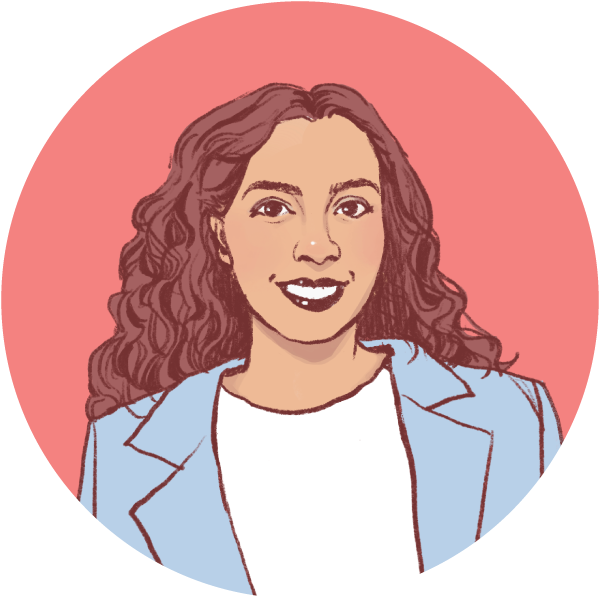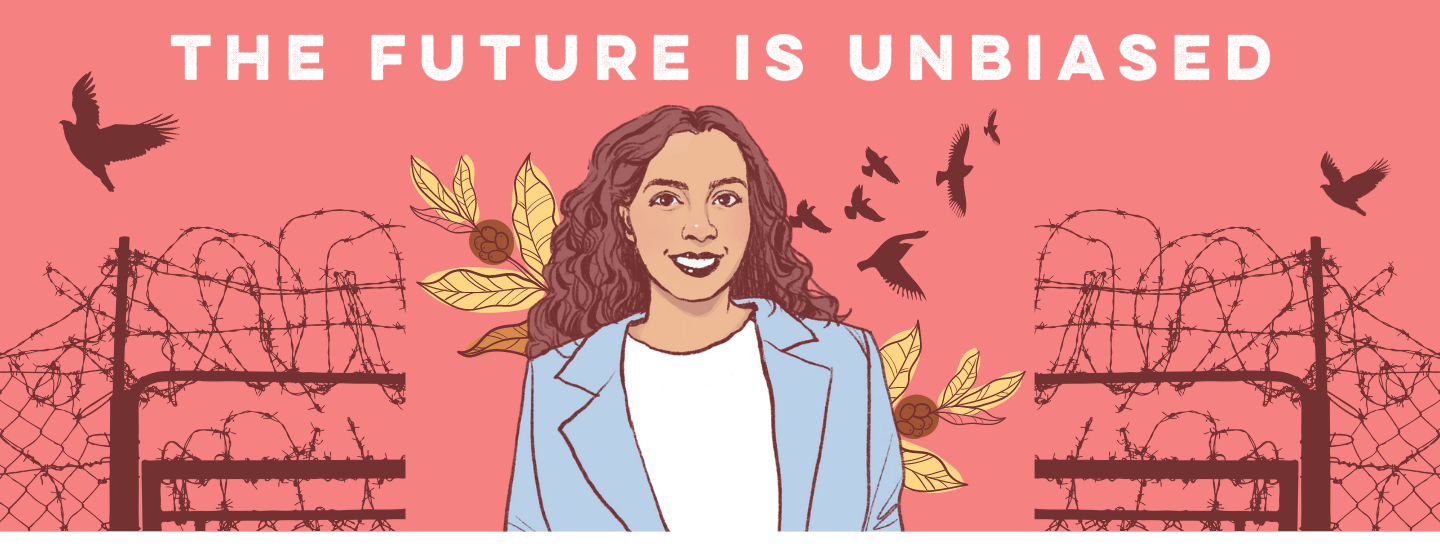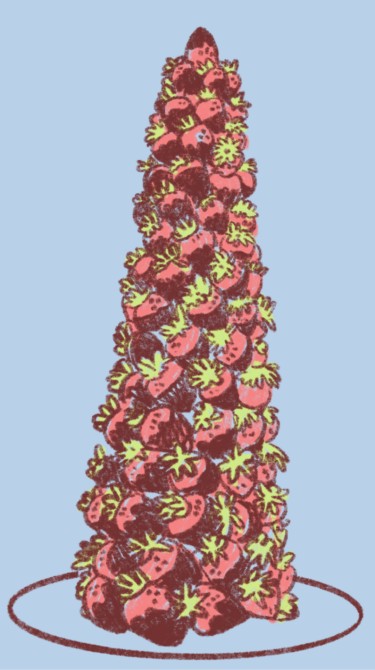The Future is Unbiased
 |
Nour Kalbouneh Aspiring lawyer, advocate, coffee lover, unapologetic immigrant |

My uncle immigrated here first. I have no idea why or how he chose Wisconsin, and if I could go back in time and change it, I would. But my parents followed him and then after our visas expired, they tried to emigrate to Canada, but we got caught at the border and had to go back. If I could get in that time machine, I’d point my uncle toward California.
In college, I did a research project comparing the state with the most rights for undocumented immigrants, which was California, to a state with a lot of restrictive laws, which was Georgia. The difference in how people perceived their status and sense of safety was crazy to me. California almost feels like its own country in terms of undocumented life.
In high school I was one of a few people of color. I lived around a lot of privilege and saw all of the things I couldn’t have. My peers were getting driver’s licenses and jobs, and going on school trips to Ireland—none of which I could do. I got into college right away, but two weeks before moving in I got this $20,000 tuition bill, and I was like, there has to be some mistake. They’re charging me non-resident tuition? I’ve lived here my whole life. After that I never thought I could go back to school, but a lot has changed for me since then.

When people talk about DACA recipients, they often try to glamorize us. They say things like, Oh, these are Americans too. Once, in an interview, someone said that to me and I said, no, I don’t consider myself American. Not only because of my culture, but because you don’t accept me. And even if you do tomorrow, you have still put me through a life of struggle.
I think home has to be a place where you feel comfortable, accepted, and loved. It’s a place where you’re not struggling all the time. Not that I don’t think struggling is a natural way of life, but when you have to overcome obstacles every single day and aren’t feeling safe or comfortable, I don’t think I could ever call that home.

I have a younger brother who’s a citizen. He has two older siblings and parents who provide for him. He never grew up in a life of struggle. I look at him and sometimes wish that I had his lifestyle because it’s very carefree. Whereas, I had to be an adult as soon as I stepped into this country.
I was eight years old when we were detained by ICE. They stormed our minivan. 20 armed officers for a family of four. After that, I spent most of my childhood in immigration court. My home country revoked our citizenship, so when the U.S. tried to deport us, we couldn’t go back. We couldn’t go anywhere. We’re stateless. I definitely think that experience was directly correlated with me wanting to pursue law. We had a lot of bad lawyers and I think I blamed them sometimes instead of the system. I just knew I never wanted to make anyone feel the same way that I felt as a kid sitting in that courtroom.
At my nonprofit, I have to tell people every day that I can’t help them. And I keep asking myself, how are we making a difference? The answer I hear a lot is that each person is making small changes to the system from within. And while I’ve seen some happen, I don’t feel like it’s enough. Still, every time I’ve thought about switching to a different career path, I’m always led back to this feeling that I just have to try. I have to try to become an attorney and help people as best I can.
My dream is to work at an innocence clinic. There’s this bias against undocumented immigrants that’s the same bias against people who are incarcerated; a perception that they’re bad people. When I got trained to go inside prisons, the prison’s goal was to terrify me that I was going to be attacked. They gave me a body alarm and taught me how to use it. But when you go in you realize nobody’s out to get you. They’re just people. It resonates with me because I don’t think an immigration officer has ever treated me like a normal human. As soon as I walk in those doors for biometrics appointments, I’m just another illegal person.
Before I went to college, I didn’t know a single undocumented person besides myself, and then I’d yet to meet another undocumented Arab person until the Immigrants Rising Pre Law Program. One panelist was Middle Eastern and she was at Harvard Law School. To be able to see somebody like yourself doing what you want to do someday, it really changes your life.

I have a side business doing strawberry dipping and other treats. It lets me be creative and a little mindless. I worked at Edible Arrangements a long time ago so that was kind of my training. And then during lockdown, I had a lot of time on my hands so I started playing with designs. I make these big 12 to 18 inch strawberry towers. They take a lot of work, but they are really beautiful and people seem to love them. I try not to think about how easily they could tip over in somebody’s car when they’re driving away.
Yes, I’m a coffee person too. It keeps me going while studying for the LSAT. My go-to order is an iced shaken espresso with a pump of toffee nut. My family actually ran one of the biggest coffee distributors in Palestine until the war got really bad and they closed their shop. I think that’s where my love of coffee comes from. I’m pretty sure they were feeding it to me as soon as I could have it.

Right now my dad is on a venture to restart the family business. He was able to obtain the old logo and is buying beans. We got him this roaster that is very smelly and makes a lot of smoke so he has to use it outside. His routine is to sit outside, sip his coffee, and roast his beans. It’s great to see because he has worked as a taxi driver for so long doing 14, 15 hour days. He’s finally getting to explore something different, something he loves.
It’s not something that’s talked about, but as an undocumented person, I’m expected to be the type of lawyer that wants to make social change. And while I do want to do that, I am also thinking: How do I build generational wealth in this country? How do I make sure that whoever’s here after I’m gone doesn’t have to deal with the same struggles as me, regardless of status?
I don’t think in 15 years I’ll be a citizen due to Congress actually making a change. I’m not very optimistic about it but if I had to dream, leaving these borders would be at the top of my list. After my graduation, we took a trip to Niagara Falls and everything fun to do was on the Canadian side. To have to just stand there, when it was just across the street, was so hard. So maybe I’d start there, you know? Maybe I’d go see the view from the other side.
About the Storyteller: Born in Palestine and now living in Wisconsin, Nour was one of Immigrants Rising’s 2022 Pre-Law Fund recipients. Check out Nour’s business @berrysweetbynk on TikTok or Instagram.
